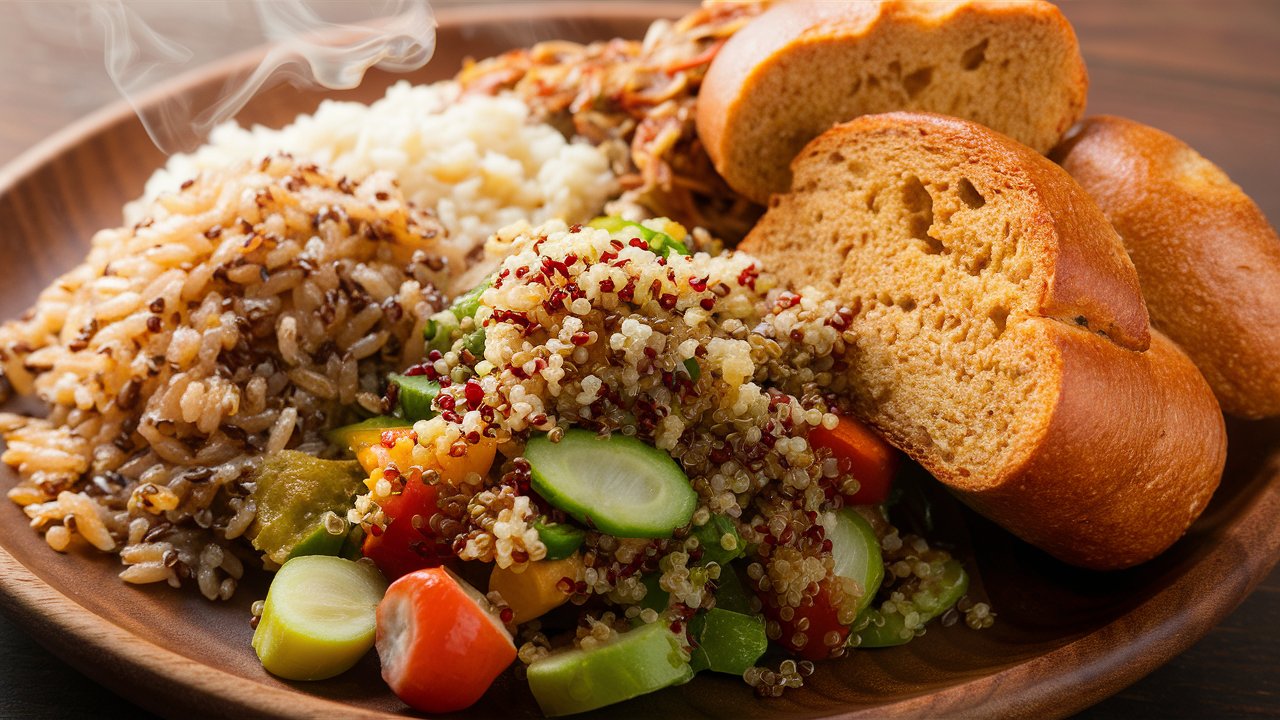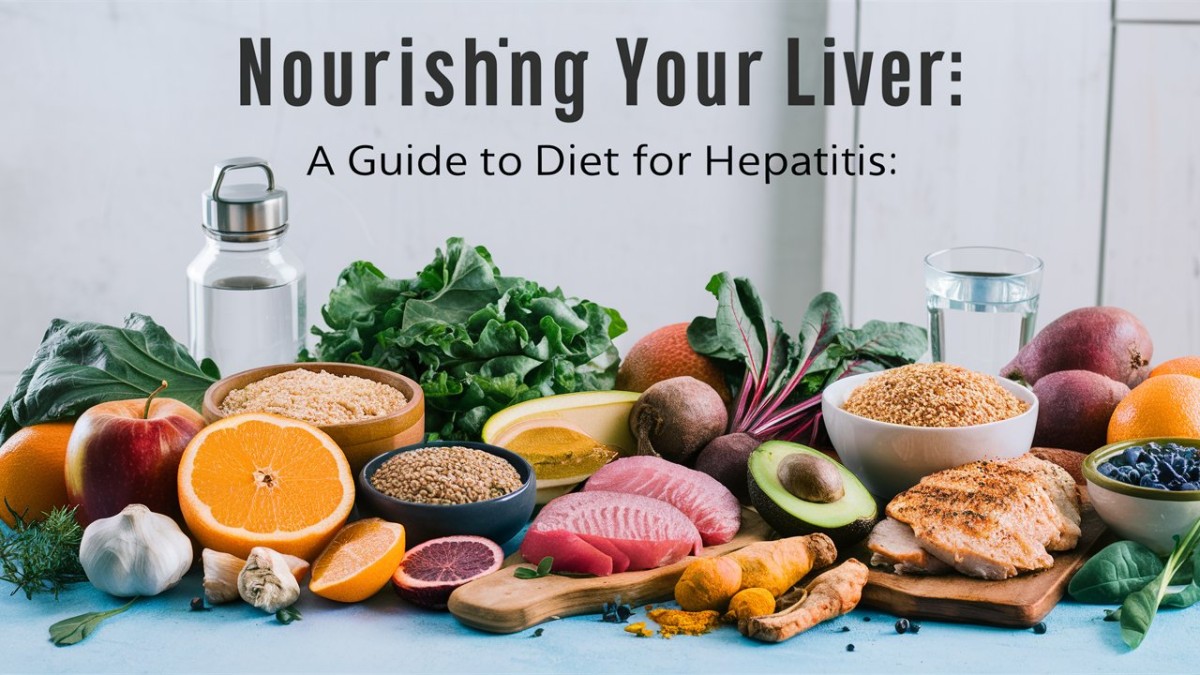Introduction
Marked every year on July 28th, the World Hepatitis Day always brings focus on the issue and awareness of liver health, infectious hepatitis to millions of people. While celebrating this day, it becomes necessary to raise awareness on the factors about diet and its impact on hepatitis. Hepatitis means inflammation of the liver mostly due to viral factors and nutritional intervention should not be random but carefully planned for the health of the liver. This guide focuses on healthy eating plans intended for people with hepatitis and learning how to cope with the illness in a positive way.
Understanding Hepatitis and Its Dietary Needs
Here, we have A, B, C, Delta or D, and E hepatitis and each one of them has its own problems. However, it means that one of the critical aspects of liver disease, related to nutrition, is preserved: a liver-friendly diet. All in all, nourishing the liver is imperative, particularly when suffering from hepatitis or any ailment affecting the body’s purification organ. Adherence to a healthy meal plan is beneficial in decreasing pressure on the liver, facilitating recovery, and enhancing the patients’ wellbeing.
Embrace Whole Foods: The Foundation of Liver Health
Obesity coupled with a poor diet are the primary causes of many diseases, so whole foods are the best foods to include in the diet to improve liver health. These include:
Fruits and Vegetables:
It should be noted that fruits and vegetables are positively effective in fighting the oxidative stress and inflammation processes due to the presence of antioxidants and vitamins. It is recommended to choose colorful design, which includes berries, green-leafy vegetables and cruciferous vegetables including Broccoli and Brussels sprouts. These foods meet one's nutritional requirements but also assist in the lowering of liver fat and improving the detoxifying process.
Whole Grains:
 These include brown rice, quinoa, and whole wheat all of which contain fiber. Fiber plays a major role in digestion and also helps in weight control which is important when dealing with hepatitis. It also helps in supporting or liver functions and it helps in the expulsion of toxins from the body.
These include brown rice, quinoa, and whole wheat all of which contain fiber. Fiber plays a major role in digestion and also helps in weight control which is important when dealing with hepatitis. It also helps in supporting or liver functions and it helps in the expulsion of toxins from the body.
Lean Proteins:
Chicken turkey fish and legumes can supply proteins in their natural form without the fats contents found in red meats. Since protein is one of the most significant macronutrients that play a role in the healing process of the liver, its adequate concentration in the diet is essential. Make sure to incorporate omega-3 fatty acids food rich in fish such as salmon for it has anti-inflammatory properties that help in the liver.
Hydration: The Unsung Hero
 In many cases, water is underestimated and does not receive proper attention in supporting the health of the liver. The liver has specific detoxifying functions that require water; it’s used to eliminate toxins from the body and for other functions. One should drink not less than 8 glasses of water per day. In reference to beverages that are taken, then, dandelion root or milk thistle herbal teas are favorable since they aid in supporting the liver. Or you could just add honey to your water.
In many cases, water is underestimated and does not receive proper attention in supporting the health of the liver. The liver has specific detoxifying functions that require water; it’s used to eliminate toxins from the body and for other functions. One should drink not less than 8 glasses of water per day. In reference to beverages that are taken, then, dandelion root or milk thistle herbal teas are favorable since they aid in supporting the liver. Or you could just add honey to your water.
Limit Unhealthy Fats and Sugars
An adverse diet of foods high in unhealthy fats and sugars can actually increase liver inflammation and such diseases like fatty liver disease. To mitigate these risks:
Reduce Saturated and Trans Fats:
These are the usual fats present in foods that are fried, baked products, and processed snacks and these can harm the liver. Therefore, instead of using saturated fats, include healthy fat in your diet such as avocados, nuts, and olive oil.
Minimize Added Sugars:
Increased intake of sugars and sweets results in weight gain, and in extreme case increased fat in the liver. Another intelligent consideration of portion control is the details of food products where sugars may have been sneakily added. opt for the natural sweetening agents such as honey and maple syrup but restrict the intake.
Incorporate Liver-Boosting Superfoods
 Some of the foods that are definitely helpful for the liver are superfoods, but everyone should know that every food does help in a different way. Incorporate these into your diet:
Some of the foods that are definitely helpful for the liver are superfoods, but everyone should know that every food does help in a different way. Incorporate these into your diet:
Garlic: Garlic also has anti-inflammatory effects, it aids in detoxification and protects the liver.
Turmeric: Co-enzyme of curcumin found in this golden spice also has strong anti-inflammatory properties and it could play a role to help to decrease liver inflammation.
Beets: These have betalains that help the liver in detoxification and to have strong liver function. To prepare, incorporate them in salads, soups or blended drinks.
Moderation and Portion Control
Moderation is also a key aspect in balancing a diet so as to make the necessary adjustments that are required in order to ensure that a person’s food intake is parallel to that of the required nutrients in the body. Dividing the portions in several meals is also beneficial for the body, as well as it alleviates the load on the liver at once.
Therefore, it is recommended to avoid the large meals because your stomach will be under so much pressure to break down all the food that you eat. Consume portions in the right proportions to avoid being obese and therefore reduce the problems that accompany it.
Special Considerations: Alcohol and Medications
In a nutshell, alcohol is a taboo to anyone found with hepatitis. It can cause more damage to the liver and worsen the inflammation present in it drastically. The same should also be taken with some caution when it comes to OTC drugs and herbal remedies because some of them can interfere with some hepatitis medications or even worsen the conditions of the liver. It is always advisable to seek your doctor’s advice before introducing any supplement or any medication to your system.
Tailoring Your Diet: Personalization is Key
It is crucial to remember that each human being is unique and requires different things, and the aspect applies to their reactions to changes in diets. Consult with a dietician or primary care doctor to come up with a dietary plan that is suitable for your particular hepatitis form and your medical status. Hence, by attending routine physical check-ups or follow-ups, it is easier to make the appropriate changes to your diet.
For more content such as these, don't forget to read the blogs on Health Benefits!
Conclusion
On this World Hepatitis Day let us all ensure that we are in a position to change our status and that of individuals around us by improving our knowledge base. It is important to stress that a balanced diet of food that is friendly to the liver is not about avoiding but about choosing food items that are beneficial to the liver. Thus, we should pay attention to whole products, normal hydration levels, exclusion of damaging fats, and sugars, as well as the inclusion of products beneficial to the liver. But it takes small steps for every meal to become the ‘right’ choice for the liver; and every bite on your plate is a step towards healthier liver. Here’s to a bright and healthy future, and to awakening awareness on the lives with hepatitis struggles.
Happy World Hepatitis Day!
